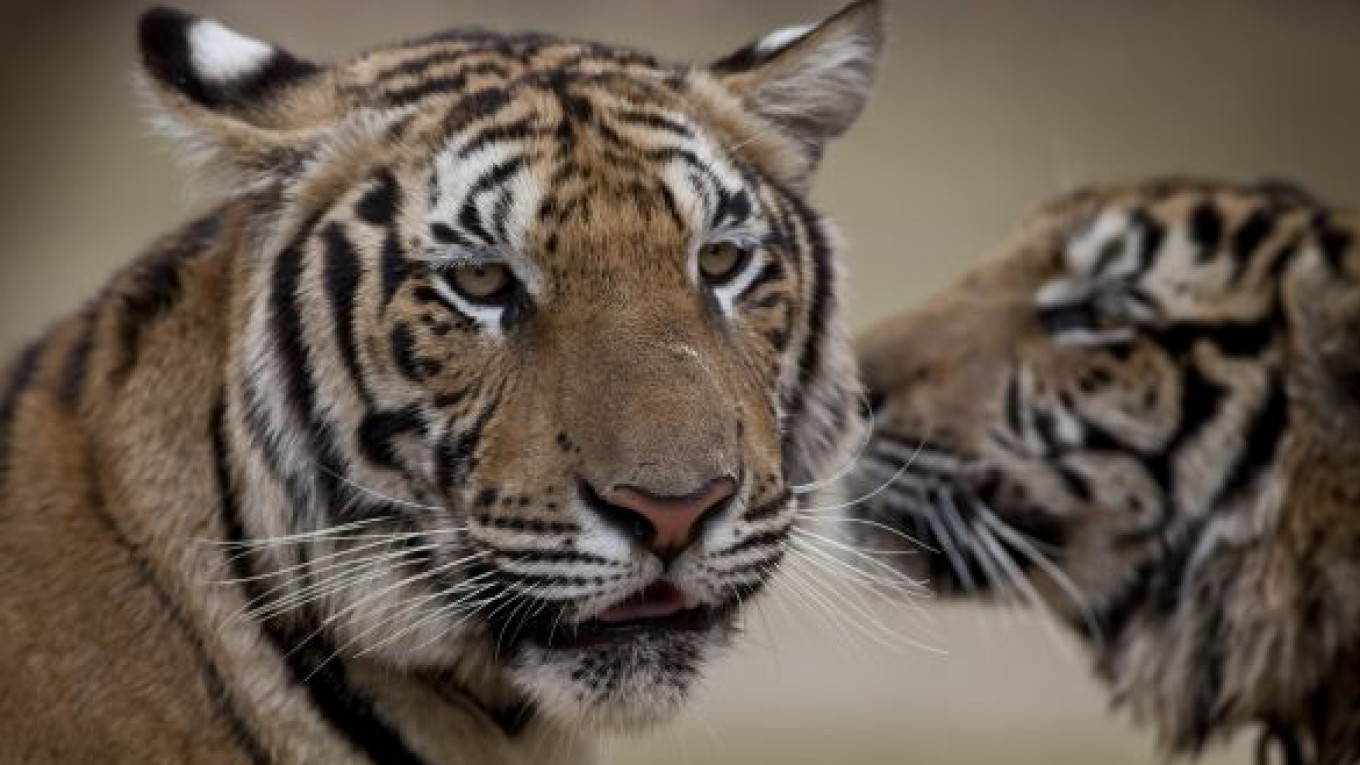HUA HIN, Thailand — Russia and a dozen Asian nations vowed Friday to double the number of wild tigers by 2022, crack down on poaching that has devastated the big cats and prohibit the building of roads and bridges that could harm their habitats.
However, the historic declaration adopted by the 13 countries that have wild tigers includes no new money to finance the conservation efforts. The agreement only includes plans to approach international institutions like the World Bank for money and to develop schemes to tap money from ecotourism, carbon financing and infrastructure projects to pay for tiger programs.
"This is a historic meeting. Before this, not many people paid attention to tigers," Thai Natural Resources and Environment Minister Suwit Khunkitti said after the three-day meeting in Hua Hin. "Stopping the depletion of tigers is a very important issue for all of us."
The declaration will now be considered for approval by heads of state of the 13 countries in September at a meeting in Vladivostok.
Tiger numbers in recent decades have plummeted because of human encroachment — with the loss of more than nine-tenths of their habitat — and poaching to supply a vibrant trade in tiger parts. From an estimated 100,000 at the beginning of the 20th century, the number of tigers today is less than 3,500.
Along with a target for doubling tiger populations, countries agreed to protect core tiger habitats as well as buffer zones and corridors that connect key sanctuaries and national parks. Governments also committed to reduce poaching through beefed-up law enforcement and to minimize human-tiger conflicts through job creation programs and other efforts.
The only setback, delegates said, was a successful effort by China to take out language in the draft declaration that called for maintaining a permanent ban on the tiger trade. China's concern is the impact that the language would have on its domestic tiger trade, which has been banned since 1993 but which they have lobbied to reopen at some point.
Conservationists said the declaration included all the components for ensuring the tigers' steady recovery, though they warned that much work had to be done to ensure that all the promises were implemented.
"This is excellent news for tiger conservation," said Michael Baltzer, who heads the WWF Tiger Initiative and attended the meeting.
"Simply, there never has been a high-level government commitment to take forward tiger conservation," Baltzer said. "The fact the governments committed to doubling the numbers of tigers shows they have high ambition. They are setting the bar at a high level."
The World Bank's Keshav Varma, program director for the Global Tiger Initiative, said the declaration represents a new way of thinking among governments and donors.
"There is a new trend in society to save biodiversity, to be more conscious of climate change, to look at sustainability, to look at green development," Varma said. "It is a huge change, and this is a manifestation of this change."
Varma and Baltzer downplayed the absence of financial commitments in the document, saying they expected pledges to be forthcoming in Vladivostok as donors get a clearer idea of conservation plans that come out of this declaration and the cost of implementing them.
"Now that we have commitment from governments, the next step is bringing donor partners on board," Baltzer said. "Even here the donors came together and started talking about how they could be partners in this whole process."
A Message from The Moscow Times:
Dear readers,
We are facing unprecedented challenges. Russia's Prosecutor General's Office has designated The Moscow Times as an "undesirable" organization, criminalizing our work and putting our staff at risk of prosecution. This follows our earlier unjust labeling as a "foreign agent."
These actions are direct attempts to silence independent journalism in Russia. The authorities claim our work "discredits the decisions of the Russian leadership." We see things differently: we strive to provide accurate, unbiased reporting on Russia.
We, the journalists of The Moscow Times, refuse to be silenced. But to continue our work, we need your help.
Your support, no matter how small, makes a world of difference. If you can, please support us monthly starting from just $2. It's quick to set up, and every contribution makes a significant impact.
By supporting The Moscow Times, you're defending open, independent journalism in the face of repression. Thank you for standing with us.
Remind me later.


